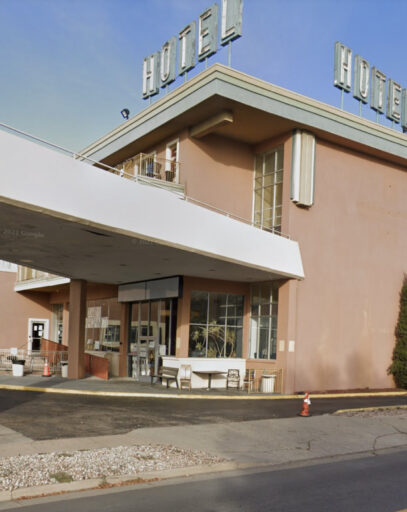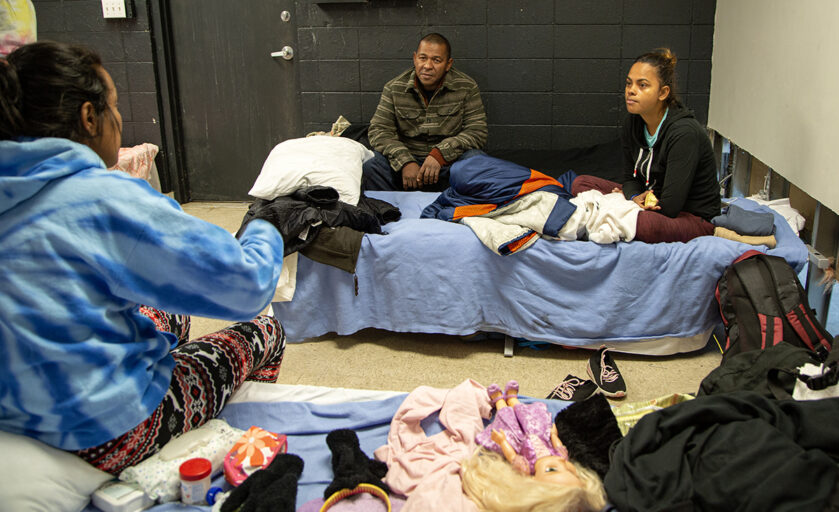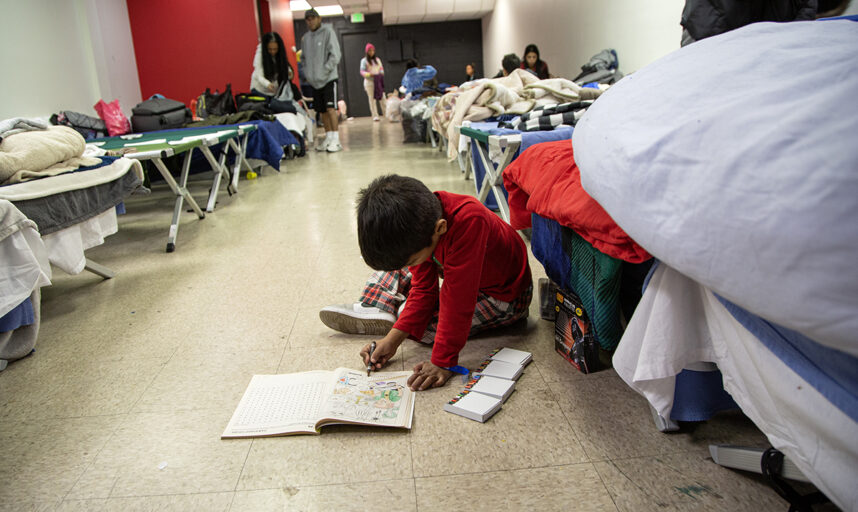
(Photo/Courtesy Regis University)
ONE CITY RECREATION CENTER THAT HAD BEEN SHELTERING MIGRANTS RE-OPENED FOR PUBLIC USE.
Newsroom El Comercio de Colorado
Haga click aquí para leer la versión en español
Denver’s Emergency Operations Center reported that has completed a transfer of migrants sheltering in city facilities to sheltering in partner facilities. Those private facilities are funded by the city and operated by city staff. Since January 30th, there is no migrants sheltered in Denver’s recreation centers. Of the city recreation centers that had been sheltering migrants, one re-opened for public use this morning. Denver moving migrants to hotels.
The transfer of migrants from the recreation centers began to be executed the second week of January. By that time, residents of the areas surrounding the recreation centers had begun to complain about not being able to use these facilities in the winter season when they usually become critical for physical activity. Also at the time, Michael Hancock, the mayor of Denver, was revealing that the city had exhausted its budget to help them.
Hancock determined that those who still benefited from housing in municipal facilities should leave those places in no more than two weeks. The mayor set a goal that all Denver shelters should be closed by February 27. Everything indicates that this goal would be at least partially met. City employees will continue to oversee caring for migrants staying in hotels and other shelters in premises owned by churches and other non-profit organizations.
Colorado contributes $5 million
As of the afternoon of January 30th, there were 984 migrants staying at two Denver hotels and a few small shelters at nonprofit facilities. The costs of these accommodations are borne by Denver, which received two and a half million dollars from the Colorado government. However, sources close to the management of the migrant emergency assure that in recent weeks the state of Colorado has assumed a more active role in paying for migrant care.
Polis reported that it will allocate another two and a half million dollars to solve this crisis. Polis, however, continues to rely on non-profit organizations to help Denver meet essential humanitarian needs during the migrants’ ongoing transition. At the governor’s efforts, Regis University installed a refuge center that came to care for about 50 migrants. This refuge was open for about ten days.

There were 984 migrants staying at two Denver hotels and a few small shelters at nonprofit facilities.

Fewer migrants arrive
The arrival of migrants from the Mexican border has decreased in the last two weeks. As of January 20, fewer than 20 people per day are arriving in Denver on average. By January 26, no migrant arrival was registered. However, on January 30th, 33 migrants arrived to Denver. Since December 9, some 4,303 people who crossed the US border with Mexico have arrived in Denver.


Donations
The donation site hosted by the Little Saigon community at 1011 S. Federal Blvd remains open and continues to accept donations from Noon- 5 p.m. on Tuesdays and Wednesdays.
You may also like:
Removing Healthcare Language Barriers for Spanish-Speaking Coloradans
Ean Tafoya: “We must build affordable housing together with the community”
The new Consul General of Mexico arrived in Denver






otras noticias
Polis has 30 days to sign, veto, or let SB25-276 take effect
Colorado Legislature Approves Law to Boost Food Truck Industry
Active-Duty Soldier Arrested in Connection with Colorado Springs “After Party” Raid